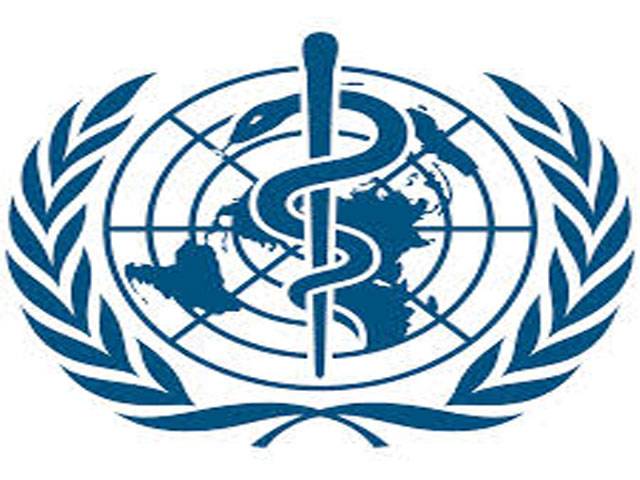CONAKRY : The World Health Organization warned west Africa’s Ebola-hit nations on Friday that the epidemic was spiralling out of control and could spread to other countries, causing ‘catastrophic’ loss of life and severe economic disruption.
WHO chief Margaret Chan told the leaders of Guinea, Sierra Leone and Liberia at a regional summit the response to the epidemic had been ‘woefully inadequate’, revealing that the outbreak was ‘moving faster than our efforts to control it’. The leaders were in the Guinean capital Conakry to organise the deployment of hundreds of extra medical personnel as part of a $100 million emergency response to an epidemic which has claimed more than 700 lives.
The plan will also bolster efforts to prevent and detect suspected cases, urge better border surveillance, and reinforce WHO’s sub-regional outbreak coordination centre in Guinea. ‘If the situation continues, the result can be catastrophic in terms of lost lives.
but also severe socio-economic disruption and a high risk of spread to other countries,’ Chan said. She described the outbreak as ‘by far the largest ever in the nearly four-decade history of this disease’.
‘It is taking place in areas with fluid population movements over porous borders, and it has demonstrated its ability to spread via air travel, contrary to what has been seen in past outbreaks,’ she told the summit. ‘Cases are occurring in rural areas which are difficult to access, but also in densely populated capital cities. This meeting must mark a turning point in the outbreak response.’
The meeting came after Dubai’s Emirates became the first global airline to announce it was suspending flights to the stricken area while the United States, Germany and France issued warnings against travel to the three African countries. Meanwhile Nigeria quarantined two people who had ‘primary contact’ with a man who died of Ebola in Lagos last week as west Africa battled to tame the outbreak. The WHO raised the death toll by 57 to 729 on Thursday, announcing that 122 new cases had been detected between Thursday and Sunday last week, bringing the total to more than 1,300.
‘Current numbers of national and international response staff are woefully inadequate,’ Chan said, revealing that 60 health workers had died treating patients in the outbreak. Sierra Leone’s leader Ernest Bai Koroma has announced a state of emergency, quarantining Ebola-hit areas and cancelling foreign trips by ministers, while Liberia has closed all of its schools and put government workers on leave.
Liberian President Ellen Johnson Sirleaf warned ahead of the summit that the crisis was ‘nearing a catastrophe’ and appealed for more doctors and supplies. Early denial about the dangers of the contagious disease among Liberians has now ‘turned into fear and panic’ she told CNN television. ‘There are dead bodies all over the place and they now know that it’s real. They know that it’s deadly and they are now beginning to respond,’ Sirleaf said.
The summit marks the first time heads of state in west Africa have met specifically to discuss a joint response to the crisis, although Ebola has come up at a previous regional meeting. As a member of the Mano River Union bloc which groups the nations, Ivory Coast is also represented, by Health Minister Raymonde Goudou Coffie, although it has yet to register any Ebola cases. Ebola, which has no vaccine, causes severe muscular pains, fever, headaches and, in the worst cases, unstoppable bleeding.
It has killed around two-thirds of those it has infected since its emergence in 1976, with two outbreaks registering case fatality rates approaching 90 percent. The death rate in the current outbreak is a lower-than-average 55 percent. Fears that it could spread to other continents through air travel have been growing, with European and Asian countries on alert alongside African countries outside the Ebola crisis zone.
In Britain, Sierra Leone cyclist Moses Sesay was quarantined and tested for Ebola at the Commonwealth Games in Glasgow, before being given the all-clear, the athlete told a British newspaper. Elsewhere in Africa, Kenya, Ethiopia and Democratic Republic of Congo, home to some of the continent’s largest transport hubs, said they had enhanced screening at border points and airports. Pan-African airlines Arik and ASKY have halted flights to and from Liberia and Sierra Leone, while Asia-Pacific nations from Hong Kong to Australia have announced tighter security measures at airports, some warning against travel to the Ebola-hit countries.
Thursday, April 18, 2024
‘Ebola moving faster than efforts to control it’

Caption: ‘Ebola moving faster than efforts to control it’
Jailed Myanmar leader Suu Kyi moved to house arrest
April 18, 2024
Jahangir Khan PSA Satellite Squash Series strats
April 18, 2024
Pakistan women face West Indies women in first ODI today
April 18, 2024
Asad, Amir reach PTLA Junior National Tennis semis
April 18, 2024
Rail Revival
April 17, 2024
Addressing Climate Change
April 17, 2024
Saudi Investment
April 17, 2024
Political Reconciliation
April 16, 2024
Pricing Pressures
April 16, 2024
Workforce inequality
April 17, 2024
New partnerships
April 17, 2024
Shikarpur crisis
April 17, 2024
Peace quest
April 17, 2024
Democratic harmony
April 16, 2024
ePaper - Nawaiwaqt
Advertisement
Nawaiwaqt Group | Copyright © 2024





